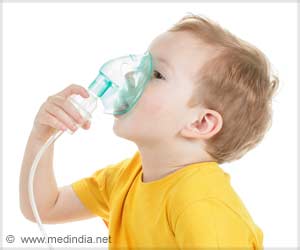Medical Assistance in Dying (MAID) in Canada, allows eligible individuals suffering from grievous and irremediable medical conditions to receive assistance in ending their lives.

- Medical assistance in dying (MAID) is a procedure that allows patients to have peaceful death
- All the eligibility criteria must be met to proceed with MAID
- Euthanasia and MAID both provide peaceful death but the procedure is different
Medical assistance in dying (MAID) is a process that allows a patient who is eligible to receive assistance in ending their life. MAID is available for individuals suffering from grievous and irremediable medical conditions.
The federal Criminal Code of Canada permits MAID only under specific circumstances and rules. It involves a detailed assessment process to ensure all eligibility criteria are met and requires consent from the concerned individual. The conversation around MAID continues to evolve in Canada, reflecting ongoing discussions about ethics, healthcare rights, and personal autonomy (1✔ ✔Trusted Source
Medical assistance in dying: Overview
).
Advertisement
What are the Eligibility Criteria for MAID in Canada?
To be eligible for MAID, all the following criteria must be met
- The individual must request MAID voluntarily.
- The individual must be 18 years of age or older.
- The individual must have the capacity to make health care decisions.
- The individual must provide informed consent.
- The individual must be eligible for publicly funded health care services in Canada.
- The individual must be diagnosed with a grievous and irremediable medical condition.
- Mental illness as the sole underlying medical condition is excluded
Grievous and Irremediable Medical Conditions
To be considered as having a grievous and irremediable medical condition must meet all of the following criteria. They are
- Have a serious illness, disease or disability
- Be in an advanced state of decline that cannot be reversed
- Experience unbearable physical or mental suffering from illness, disease, disability or state of decline that cannot be relieved under conditions that are acceptable by the patients
There is no need to have a fatal or terminal condition to be eligible for MAID.
If the only illness the patient suffers is a mental illness then they are not eligible for MAID. But if the mental illness is present along with other conditions then the person is eligible for MAID.
Advertisement
How Does MAID Work?
Anyone requesting MAID must satisfy all the above criteria to receive medical assistance in dying. Only medical practitioners are allowed to conduct assessments and provide medical assistance in the procedure.
Two methods of medical assistance in dying are available in Canada.
- A physician or nurse practitioner administers the medication that causes death. This is also called clinician-administered medical assistance in dying.
- A physician or nurse practitioner prescribes the medication to the eligible patient for self administration to cause death. This is called self-administered medical assistance in dying.
The patient must request MAID by themselves without any prior pressure from relatives or caretakers. Then informed consent must be given to receive medical assistance in dying after gaining all information needed for making decision.
Medical assessment must be done by two different independent medical practitioners to request for MAID.
Withdrawal of the request is also available, at any time, in any manner even if they are eligible for the procedure. A final consent is obtained before proceeding with the procedure.
Advertisement
Is Medical Assistance in Dying and Euthanasia Same?
Medical assistance in dying and euthanasia is for a peaceful death for patients suffering from incurable diseases. The difference is about who administers the medication for death. Euthanasia is an intentional act where another person administers the drug to the patient. But in MAID the drug is taken by the patients (2✔ ✔Trusted Source
Medical Aid In Dying Is Not Assisted Suicide, Suicide or Euthanasia
).
Therefore both are different but their purpose is same. In some countries MAID is being legally practised, but euthanasia is illegal in most of the countries.
2022 Overview of Medical Assistance in Dying (MAID) in Canada
In 2022, Canada recorded 13,241 medically assisted deaths (MAID), which accounted for 4.1% of all deaths. This represents a 31.2% increase from 2021. Since the introduction of MAID in 2016, a total of 44,958 individuals have utilized MAID.
The majority of recipients were older, with an average age of 77, and were mostly males (51.4%). Cancer was the leading condition among those who received MAID, accounting for 63.0% of cases, followed by cardiovascular issues at 18.8% (3✔ ✔Trusted Source
Fourth Annual Report on MEDICAL ASSISTANCE IN DYING IN CANADA 2022
Most recipients, 77.6%, received palliative care or supportive care, while over a third, 36.8%, required disability support. Common reasons to seek MAID included the loss of the ability to participate in meaningful activities (86.3%) and difficulties with daily living tasks (81.9%). Family physicians conducted the majority of provisions, accounting for 67.7% of cases, with higher demand observed in urban areas.
Of the 16,104 requests for MAID in 2022, 81.4% resulted in the provision of assistance. A continued rise in Medical Assistance in Dying (MAID) cases in Canada underscores a significant shift in how end-of-life choices are being approached.
This calls for ongoing dialogue, policy refinement, and compassionate support for individuals navigating complex end-of-life decisions, respecting their autonomy while providing comprehensive care options.
References:
- Medical assistance in dying: Overview – (https://www.canada.ca/en/health-canada/services/health-services-benefits/medical-assistance-dying.html)
- Medical Aid In Dying Is Not Assisted Suicide, Suicide or Euthanasia – (https://compassionandchoices.org/resource/not-assisted-suicide/)
- Fourth Annual Report on MEDICAL ASSISTANCE IN DYING IN CANADA 2022 – (https://acrobat.adobe.com/id/urn:aaid:sc:AP:1af01e36-1245-4b0f-af24-5401db85259b)
Source-Medindia



